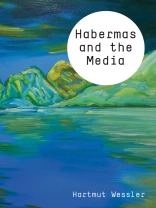Jürgen Habermas is arguably the most influential social theorist and philosopher of the twentieth century, and his imprint on media and communication studies extends well into the twenty-first. This book lucidly unpacks Habermas’s sophisticated contributions to the study of media, centering on the three core concepts for which his work is best known: the public sphere, communicative action, and deliberative democracy.
Habermas and the Media offers an accessible introduction, as well as a critical investigation of how Habermas’s thinking can help us to understand and assess our contemporary communication environment – and where his framework needs revision and extension.
Full of original and sometimes surprising insights, this book is essential reading for scholars and students of media, political communication, and democracy, as well as anyone seeking guidance through Habermas’s rich world of thought.
Tabla de materias
* Acknowledgments
* List of Figures and Tables
* Introduction
* Chapter 1: The Bourgeois Public Sphere and its Critics
* Chapter 2: Nurturing Communicative Action
* Chapter 3: Media for Deliberative Democracy
* Chapter 4: Mediated Public Spheres
* Chapter 5: Deliberative Qualities of News and Discussion Media
* Chapter 6: Non-Deliberative Media Discourse
* Chapter 7: Counterpublics and the Role of Emotions
* Conclusion
* References
* Index
Sobre el autor
Hartmut Wessler is Professor in the Institute for Media and Communication at the University of Mannheim.










